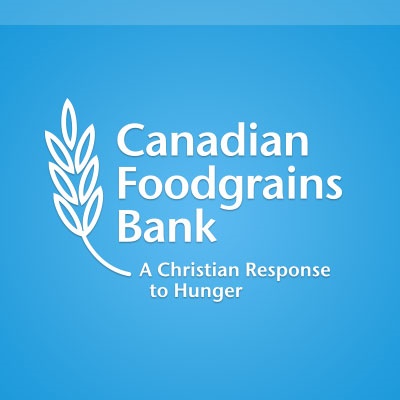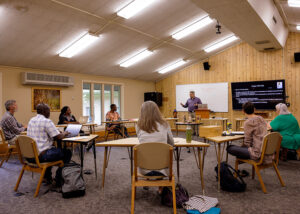As world leaders, including Canada’s new prime minister, meet in Paris November 30 to December 11, 2015, to conclude a major new climate change agreement, their main focus will be on cutting greenhouse gas emissions—a good thing. But the plight of many of the world’s 1.5 billion small-scale farmers should also be addressed there.
“Our partners across Africa and Asia are telling us that they are facing increased droughts, more severe flooding and unpredictable growing seasons,” says Jim Cornelius, executive director of Canadian Foodgrains Bank. “They need support in adapting to climate change, as well as other environmental challenges.”
A new report from the Canadian Foodgrains Bank argues that promoting strong public investments in sustainable agricultural practices will help farmers build climate resilience.
The report, Sustainable Harvests: How Investing in Agriculture Can Help Farmers Address Environmental Challenges documents the many environmental obstacles farmers face, including water shortages, degraded soils and a decline in diversity of plants and animals. Climate change poses an enormous additional risk, with the potential to increase the number of hungry people by 10-20 percent by 2050.
Small-scale farmers, particularly women, are especially vulnerable to environmental degradation. “They are often relegated to the poorest farm lands and they directly depend on natural resources, such as rain, to provide for their families,” said Cornelius.
What makes things more challenging is “they have limited capacity to adapt to these challenges, due to lack of access to credit, agricultural information and other supports,” he adds.
Many of the solutions are already known, Cornelius notes, sustainable practices such as conservation agriculture, agroforestry, use of more diversified crop rotations, and drip-irrigation.
“These practices can help conserve water resources, build soil health, and enable adaptation to climate change,” he says. “But small-scale farmers need support to put these solutions into practice.”
Unfortunately, Canadian government aid for agriculture is in decline. From 2008 to 2011 Canada’s support for agriculture averaged $450 million per year. Since 2011, this has fallen by 30 percent.
For this reason, the Foodgrains Bank is urging Canada to restore its aid for agriculture to at least $450 million per year, and to also ensure that aid supports sustainable agricultural practices. “This would be a win for reducing hunger in the world. And it would be a win for the environment,” says Cornelius.
At the climate change talks in Paris, the world’s developed countries can show their support for helping small-scale farmers adapt to climate change by making commitments of financial support to help developing countries adapt to and slow climate change, he adds.
“This is a great opportunity for the new Canadian government to make a positive contribution to fighting climate change. Let’s make sure the world’s most vulnerable farmers get the support they need,” he says.
Sustainable Harvests is the third in a series of reports from the Foodgrains Bank documenting the benefits of agricultural development. The first, Money in the Pocket, Food on the Table, made the case that investing in agriculture in developing countries is one of the most effective ways to reduce poverty in the world. The second, Growing Nutrition, showed how agricultural development can lead to improved nutrition for families. All three reports can be found under “Publications” at http://foodgrainsbank.ca/campaigns/good-soil.








Leave a Reply
You must be logged in to post a comment.